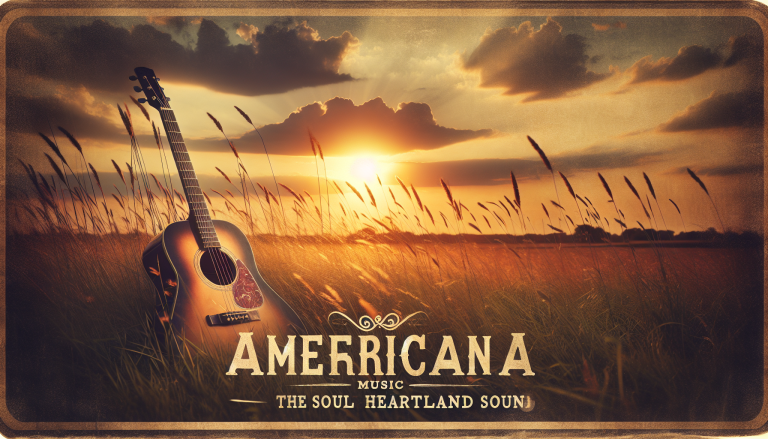The Roots and Rise of Americana Music: America’s Soulful Soundscape
For those of us enamored with the tapestry of American music, Americana isn’t just a genre—it’s a heartland experience, a mosaic of sound that weaves country, folk, blues, rock, and roots music into something profoundly soulful and timeless. Unlike some genres that announce their arrival with sudden flashes, Americana music evolved organically, a living, breathing testament to the diverse cultural forces that have shaped the United States.
In the early 20th century, as railroads stitched together sprawling landscapes and communities, so too did the migration of musicians and their stories blend the distinct musical traditions of the South, Appalachia, and the Mississippi Delta. This melding of voices laid the groundwork for what would finally be labeled as Americana decades later—a genre defined not by a strict set of musical rules, but by its spirit and authenticity.
A Living Genre: A Hybrid of Historical Echoes
Americana music is rooted deeply in American music traditions that predate the electrified explosion of rock music and heavy metal music. It harks back to the raw, acoustic melodies of folk balladeers, spiritual hymns echoing in rural churches, and the wail of country blues guitarists under open skies. Unlike the amplified aggression that defines heavy metal music or the rebellious roar often associated with rock music, Americana breathes with a more organic, roots-oriented timbre.
It’s a genre that thrives on storytelling—songs that feel like conversations held across porch railings, diary entries set to twangy guitars and fiddle strings, and laments or celebrations that capture the American experience’s grit and grace. It is the sonic lineage where bluegrass meets rockabilly, where banjos converse with electric guitars, and where accordion-driven Cajun sounds mingle with honky-tonk piano lines.
Key Artists Who Shaped Americana’s Sound and Soul
If Americana music has a pantheon, it’s a blend of legends from multiple eras who have each contributed new layers and new life to the genre. One can’t talk about Americana without tipping a hat to Johnny Cash, whose “Man in Black” persona combined country’s simplicity with an emotional reach that transcended musical boundaries. Cash’s “At Folsom Prison” album captured the raw edge of human experience, setting a template for authenticity within Amerian roots music.

Alongside Cash, Townes Van Zandt’s introspective songwriting earned him cult status; his poetic lyrics and haunting melodies are blueprints of Americana’s artistic soul. Emmylou Harris brought an unmatched elegance and vocal depth to the genre with albums like “Wrecking Ball,” which showcased her ability to bridge traditional sounds with innovative production.
Fast-forwarding to more contemporary times, artists like Wilco and Jason Isbell have revitalized Americana by blending rock music’s sensibilities with traditional instrumentation. Wilco’s album “Being There” feels like a crossroads of indie rock and country, a sonic map that guides Americana into the 21st century. Jason Isbell’s “Southeastern” is a masterclass in vulnerability and poetic precision, blending storytelling with melodies that linger like a southern breeze.
Noteworthy Albums and Songs That Define Americana’s Texture
Americana’s soundtrack spans generations, but certain records stand as landmarks that showcase its signature blend of earnestness and musicality. “American IV: The Man Comes Around,” by Johnny Cash, offers not just covers but meditations on mortality, faith, and redemption—a compilation that feels deeply American in its thematic reach.
“Car Wheels on a Gravel Road” by Lucinda Williams is another cornerstone album that defiantly captures the rural Southern psyche with grit and beauty. Williams’ voice is a weathered instrument, colored by heartbreak and hope, echoing classic Americana sentiments with contemporary urgency.
“Blue” by Joni Mitchell, although often classified in folk-rock circles, is a foundational record that influenced Americana’s emphasis on poetic lyricism and emotive storytelling. Her candid reflections on love and loss resonate profoundly within the genre’s artistic ethos.
Songs like “Pancho and Lefty” (Townes Van Zandt) and “If We Were Vampires” (Jason Isbell) demonstrate Americana’s unique ability to tell stories that are intimate yet universal, painting broad emotional landscapes with sparse yet vivid musical tools.
The Lasting Effects: Americana’s Influence on Modern Music and Culture
Americana music has done more than preserve a sound; it has become a cultural movement that honors heritage while encouraging innovation. In an era dominated by digital production and fleeting musical trends, Americana offers a refuge for those craving authenticity and narrative depth. It acts as a bridge between the ancient and the new, the acoustic and the electric, the personal and the universal.
Aspiring musicians often look to Americana as fertile ground for merging tradition with modernity. The genre’s flexible boundaries have allowed it to absorb elements of rock music and even flirt occasionally with the intensity found in heavy metal music’s storytelling, albeit through a vastly different tonal lens. This open-mindedness has led to exciting crossovers, new sounds, and renewed appreciation for roots-based music.
Moreover, Americana’s influence reaches beyond the recorded track. It’s alive in the resurgence of vinyl, the thriving festival circuits celebrating roots music, and the communal atmosphere of small venues where the artistry is felt as much as it is heard. The genre’s emphasis on narrative truths and unvarnished emotional expression has inspired countless songwriters and fans alike to reconnect with the power of music as a living art form.
For those who care about American music at its most sincere and unguarded, Americana music stands as a beacon. It’s the musical embodiment of the open road, of long summer nights spent around campfires, and the enduring human quest for meaning in song. It reminds us that sometimes, the richest stories come from the places where history, heart, and sound collide.